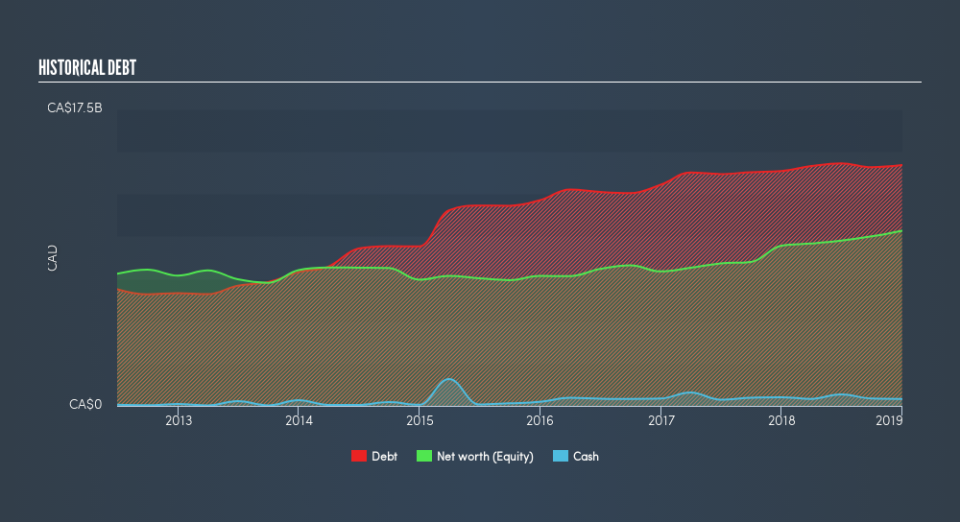Is TELUS Corporation's (TSE:T) Balance Sheet Strong Enough To Weather A Storm?

Investors pursuing a solid, dependable stock investment can often be led to TELUS Corporation (TSE:T), a large-cap worth CA$30b. Market participants who are conscious of risk tend to search for large firms, attracted by the prospect of varied revenue sources and strong returns on capital. But, the key to extending previous success is in the health of the company’s financials. This article will examine TELUS’s financial liquidity and debt levels to get an idea of whether the company can deal with cyclical downturns and maintain funds to accommodate strategic spending for future growth. Note that this commentary is very high-level and solely focused on financial health, so I suggest you dig deeper yourself into T here.
View our latest analysis for TELUS
T’s Debt (And Cash Flows)
Over the past year, T has maintained its debt levels at around CA$14b – this includes long-term debt. At this current level of debt, the current cash and short-term investment levels stands at CA$415m , ready to be used for running the business. Moreover, T has generated cash from operations of CA$4.1b in the last twelve months, leading to an operating cash to total debt ratio of 29%, meaning that T’s operating cash is sufficient to cover its debt.
Does T’s liquid assets cover its short-term commitments?
Looking at T’s CA$4.8b in current liabilities, it seems that the business arguably has a rather low level of current assets relative its obligations, with the current ratio last standing at 0.79x. The current ratio is calculated by dividing current assets by current liabilities.
Can T service its debt comfortably?
Since equity is smaller than total debt levels, TELUS is considered to have high leverage. This is common amongst large-cap companies because debt can often be a less expensive alternative to equity due to tax deductibility of interest payments. Accordingly, large companies often have an advantage over small-caps through lower cost of capital due to cheaper financing. We can test if T’s debt levels are sustainable by measuring interest payments against earnings of a company. A company generating earnings after interest and tax at least three times its net interest payments is considered financially sound. For T, the ratio of 4.71x suggests that interest is well-covered. It is considered a responsible and reassuring practice to maintain high interest coverage, which makes T and other large-cap investments thought to be safe.
Next Steps:
Although T’s debt level is towards the higher end of the spectrum, its cash flow coverage seems adequate to meet debt obligations which means its debt is being efficiently utilised. However, its lack of liquidity raises questions over current asset management practices for the large-cap. I admit this is a fairly basic analysis for T's financial health. Other important fundamentals need to be considered alongside. I recommend you continue to research TELUS to get a better picture of the stock by looking at:
Future Outlook: What are well-informed industry analysts predicting for T’s future growth? Take a look at our free research report of analyst consensus for T’s outlook.
Valuation: What is T worth today? Is the stock undervalued, even when its growth outlook is factored into its intrinsic value? The intrinsic value infographic in our free research report helps visualize whether T is currently mispriced by the market.
Other High-Performing Stocks: Are there other stocks that provide better prospects with proven track records? Explore our free list of these great stocks here.
We aim to bring you long-term focused research analysis driven by fundamental data. Note that our analysis may not factor in the latest price-sensitive company announcements or qualitative material.
If you spot an error that warrants correction, please contact the editor at editorial-team@simplywallst.com. This article by Simply Wall St is general in nature. It does not constitute a recommendation to buy or sell any stock, and does not take account of your objectives, or your financial situation. Simply Wall St has no position in the stocks mentioned. Thank you for reading.


